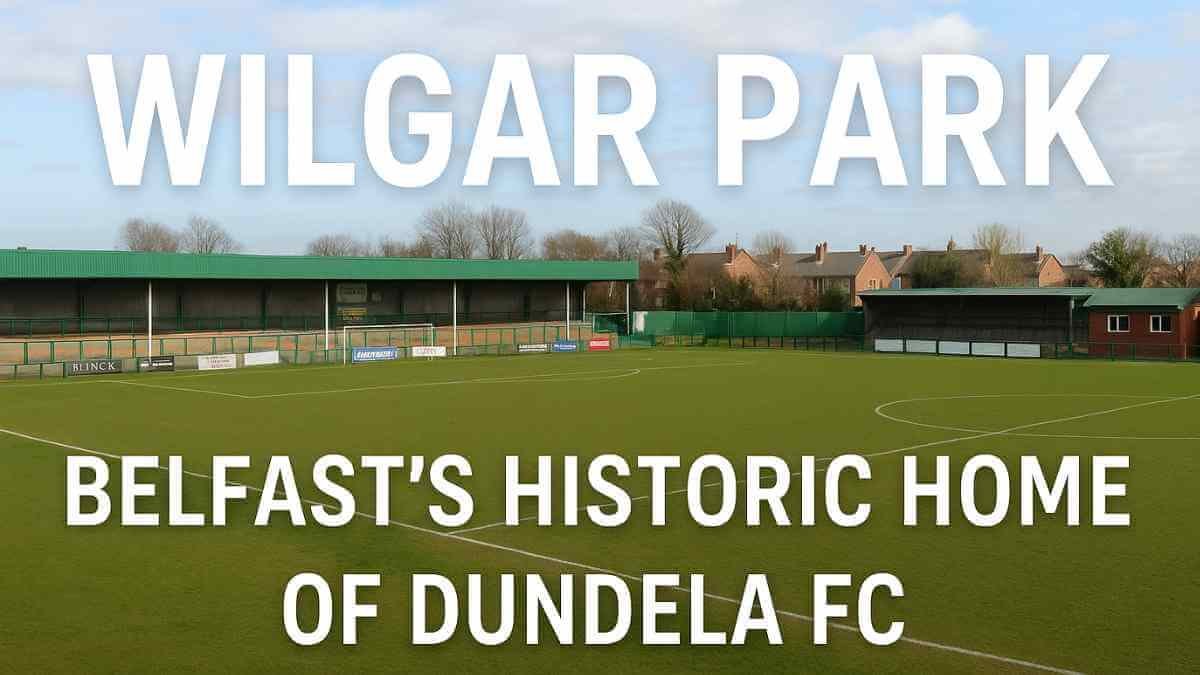Wilgar Park – Belfast’s Historic Home of Dundela FC

Wilgar Park stands as a proud testament to over a century of Northern Ireland’s grassroots football tradition. Nestled in the Strandtown area of east Belfast, this modest yet historic ground has witnessed the trials, triumphs, and timeless passion of Dundela Football Club since the early 1900s. Far more than just a football venue, Wilgar Park is a symbol of community spirit, sporting perseverance, and the enduring love of the beautiful game in Belfast.
Early Beginnings and Foundation
The story of Wilgar Park begins in 1900 when Dundela FC, founded just a few years earlier in 1895, settled into this ground as their permanent home. At the time, football in Belfast was thriving, with local clubs competing for recognition and fostering fierce neighbourhood rivalries. Wilgar Park provided Dundela with a dedicated space to grow their reputation and cultivate local support. The choice of this site was strategic; it lay close to the heart of the working-class communities from which the club drew its early supporters, making it accessible and fostering a strong local following that endures to this day.
Development Through the Decades
Over the decades, Wilgar Park evolved from a simple field into a recognisable football ground. While it has never been a massive stadium by modern standards, its improvements reflect the club’s ambitions and the loyal support of its fans. Small stands were added to provide shelter, the playing surface was meticulously maintained, and the facilities—though modest—have been continually upgraded to meet league requirements. These incremental enhancements allowed the ground to retain its unique character while ensuring it remained a functional home for competitive football.
The nickname “The Hen Run,” affectionately bestowed upon the stadium by generations of supporters, encapsulates its quirky charm. The name hints at the ground’s compact, almost rustic atmosphere, where the crowd’s proximity to the pitch fosters an intimate and intense matchday experience.
Dundela FC and the Spirit of the Club
Dundela FC, Wilgar Park’s long-time residents, have played a significant role in Northern Ireland’s football story. Competing in the NIFL Championship, the second tier of Northern Irish football, the club has consistently punched above its weight. For Dundela, Wilgar Park is more than just a pitch—it is the heart of their identity. Players and fans alike speak of the special atmosphere created by the close-knit stands, where cheers and chants reverberate across the compact terraces and inspire the team.
The club’s greatest triumph came in 1955 when Dundela won the Irish Cup, a remarkable achievement for a club outside the top division. That victory remains a point of pride and is celebrated as one of the most memorable moments in the club’s history. Wilgar Park played a central role in this story, serving as the training ground and spiritual home where the team’s character and resilience were forged.
The Modern Era and Challenges
In recent years, Wilgar Park has faced the challenges that many historic football grounds encounter in the modern game. As league standards and licensing requirements have grown stricter, Dundela FC have had to consider significant upgrades to their beloved home. In 2024, the club’s ambitions to secure promotion to the top-flight NIFL Premiership were temporarily put on hold because the pitch dimensions and certain facilities did not fully meet Premiership standards. This highlighted the balancing act between preserving the historic character of Wilgar Park and meeting contemporary football regulations.
Despite these obstacles, the club’s leadership has remained committed to ensuring that Wilgar Park continues to be part of Dundela’s future. Plans to apply for a Premiership licence and explore temporary ground-sharing options were discussed, signalling an ongoing commitment to growth while preserving the ground’s heritage.
The Matchday Experience
Attending a game at Wilgar Park is a unique experience for football enthusiasts. The ground’s compact capacity of roughly 2,000 spectators ensures that every fan is close to the action. On matchdays, the vibrant green of the pitch contrasts with the historic stands, and the noise of the home support creates an atmosphere that rivals much larger venues. The absence of vast commercialisation lends authenticity; it feels like football in its purest form, where the connection between players and supporters is immediate and heartfelt.
Supporters often describe the atmosphere as both welcoming and passionate. Whether you are a lifelong Dundela fan or a first-time visitor, the warmth of the community and the intensity of the game make a lasting impression. From the smell of freshly cut grass to the echoes of chants and cheers, a match at Wilgar Park captures the essence of traditional Northern Irish football.
Community and Cultural Significance
Beyond the football, Wilgar Park serves as a gathering place for the local community. Over the decades, it has hosted countless matches, community events, and moments of shared joy and heartbreak. For residents of east Belfast, the ground is a symbol of continuity, linking generations through the shared experience of supporting Dundela FC. Parents bring their children to their first games, passing down not just the love of the sport but also a sense of local pride and belonging.
The ground’s nickname, “The Hen Run,” has itself become a cultural reference point, encapsulating the humour and affectionate character of the community. It reflects how deeply the stadium is woven into the identity of those who call this part of Belfast home.
Future Prospects
Looking ahead, the future of Wilgar Park rests on balancing preservation with progress. Dundela’s ambition to compete at the highest levels of Northern Irish football will require continued investment in facilities, pitch upgrades, and spectator amenities. Yet there is a determination among supporters and club officials to maintain the intimate charm that makes Wilgar Park special.
Discussions about temporary ground-sharing arrangements while improvements are made demonstrate a pragmatic approach. The ultimate goal remains clear: to bring Wilgar Park up to Premiership standards without sacrificing the character and history that have defined it for more than a century.
Conclusion
Wilgar Park is more than a football ground; it is a living monument to the enduring spirit of sport and community in Belfast. From its founding days at the dawn of the 20th century to the present challenges of modern football, it has remained the beating heart of Dundela FC and a cherished landmark for the people of east Belfast. Its modest size belies its immense significance—a place where history, passion, and local pride converge, ensuring that Wilgar Park will continue to inspire future generations of players and supporters alike.



